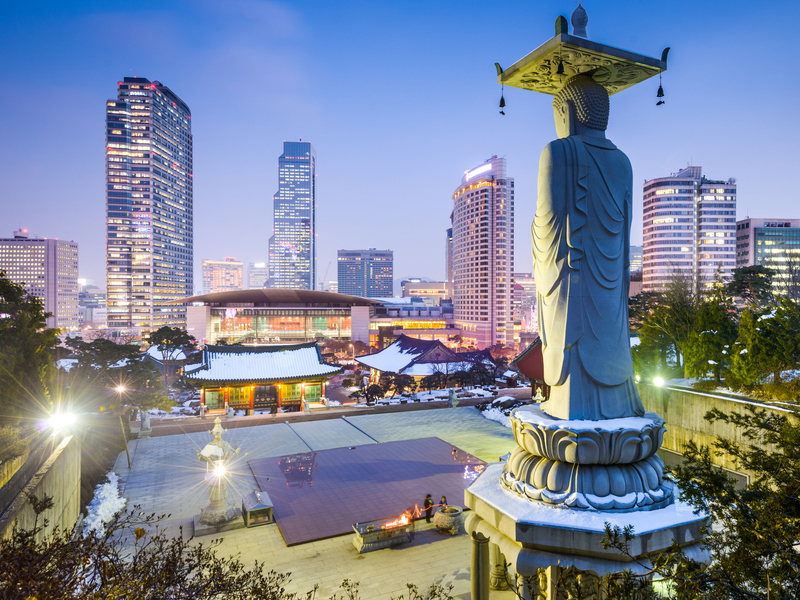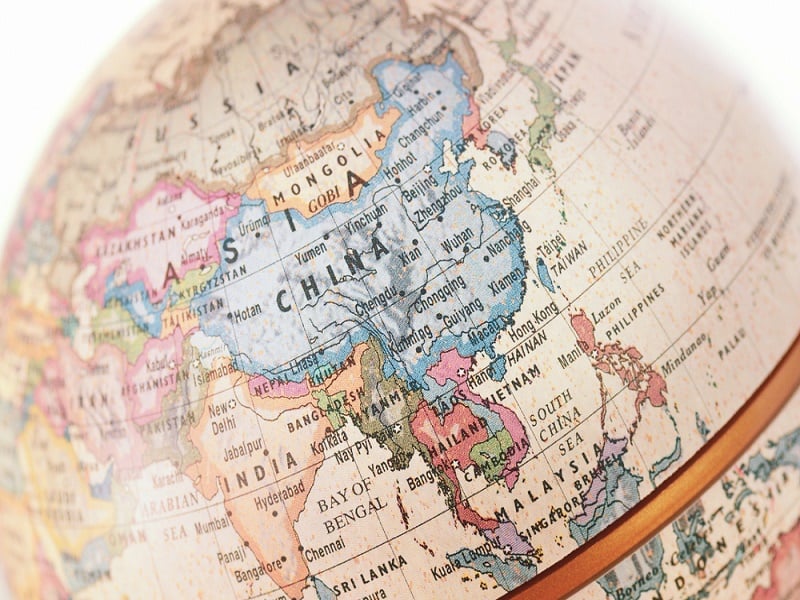
Far away from western eyes, Asian blockchain projects are thriving. A vibrant ecosystem of public and permissioned chains has sprung to life in Asia, aided by government and big business endorsement of distributed ledger technology (DLT). Many of these chains are virtually unknown outside of the region, yet enjoy high profile partnerships and endorsements in their native territory.
Also read: Germans Rush to Buy Gold as Draft Bill Threatens to Restrict Purchases
Asian Nations Are Big on Blockchain
It’s not just China that’s issued a green light to blockchain, if not bitcoin: all across South-East Asia, officials have issued similar blessings, and crypto projects have eagerly stepped up to the plate. Last week it was Thailand’s turn to roll out the red carpet to blockchain, where Sharering’s digital identity system and blockchain infrastructure are to be used in the country’s new e-visa system. The system will be deployed for visitors from India and China initially, and should dramatically speed up airport immigration for millions of travelers a year.

Blockchain initiatives of this nature are now a common occurrence in Thailand and Asia at large: in November, the country’s Excise Department announced a blockchain-based tax payback system, and in September, the Thai energy company PTT unveiled a blockchain-based renewables platform with the Energy Web Foundation. To outsiders, the pan-Asian wave of blockchain projects can seem mystifying, given that the benefits of blockchain minus bitcoin remain debatable. Nevertheless, businesses and governments are undaunted in their determination to deploy DLT to solve a myriad of problems. News.Bitcoin.com spoke to a number of experts in a bid to ascertain why Asia is big on blockchain.
Unpacking the East’s Blockchain Obsession
“Asia loves blockchain because the technology is considered as a unique way to solve financial inclusion and cross-border remittance challenges,” ventures Alexander Kech, CEO of digital asset custodial service Onchain Custodian. “Less tight to legacy technology, countries are able to leapfrog and, leveraging new tech like blockchain, progress faster than many established economies.”

“Singapore is an excellent example of a vibrant blockchain and crypto industry,” Kech continues. “A forward looking government and consultative regulator contribute to this favorable environment. The biggest fintech festival in the world (60K attendees) celebrates fintech in general and blockchain in particular … The rest of Asia is not staying still with Hong Kong and Thailand among many others gearing up in terms of legal framework to ensure they are getting ready for the future of banking and finance.” He adds:
The Ubin project, a Singapore regulator driven initiative, is working with other central banks but also securities market infrastructure to enable the use of blockchain for the settlement of cross-border payments and securities transactions. The Thai central bank is working on issuing its CBDC, while Cambodia has launched a blockchain based payment system in the country that it plans to expand to cross-border payments.
It’s a Cultural Thing
“The modus operandi for the Asia-based blockchain industry is largely different from that of the West,” explains Kyn Chaturvedi, Chief Business Development Officer with Tomochain. “Asia really looks at blockchain as a business, and where economic value can be derived from in the short, mid, and long term. The space in Asia certainly did not gain a groundswell of support due to the ideals of cypherpunks, anarchists, or libertarians. So, though decentralization is a cool narrative, it’s not what drives a business to operate successfully in Asia. Instead the focus here is on market fit, and Asian innovation is driven by fast, iterative cycles measured through customer acquisition.”

It’s a Payments Thing
“Look no further than South Korea, which was the center of crypto activity in 2017,” continues Tomochain’s Kyn Chaturvedi. “Today, the companies that survived and thrived have identified a single area to drive their businesses forward – payments. Payments is an industry ripe for innovation considering the vast number of retail investors holding crypto. We can look at startups like Terra Money to the massive Kakao social network in the commercial space.
“Next year we’ll likely see Kakao’s crypto wallet (Klip Wallet) being available for use across its millions of users. And then we can talk about the regulatory sandbox setup in Busan to allow and encourage its citizens to use a fiat-backed stablecoin for everyday commerce across the city. Tomochain is continuing to integrate with payment solutions in SEA as well. We have two major deals with Wisepass and Urbox that covers the purchases of a wide variety of products in Vietnam – everything from beverages to housewarming gifts. Wadz, a payment solution provider, is moving from Ethereum to Tomohain in order to enable their POS systems to integrate crypto payments across thousands of vendors in the region.”

It’s a Tech Thing
Bina Cho is VP of Marketing Strategy at APM Coin, whose native token is used by Seoul’s world-famous APM fashion market. According to Cho, any examination of Asia’s blockchain love affair must start and end in the country: “ One of the reasons for Korea’s strong enthusiasm for this industry is technology infrastructure and Koreans’ strong interest in new tech. For the blockchain implementation, solid IT infrastructure is required. Korea boasts one of the fastest internet speeds in the world, which means blockchain and other new IT tech can be flawlessly implemented.
“Also, since Koreans tend to be tech savvy and/or early adaptors, they are willing to experience the new tech on their own. I think these are the reasons that several blockchain projects seeking mass adoption are developing their business models from the Korean market to global markets.”

It’s an Asian Thing
“You’ll note this report is light on Asia coverage as I am not as familiar as I should be with that half of the market,” conceded Messari’s Ryan Selkis in his 76-page Crypto Theses for 2020. He’s not alone. Blockchains operated by companies that are household names in Asia are an enigma to overseas analysts. Yet when it comes to tech, where Asia leads, the west follows. As such, crypto trend-spotters would do well to fix their gaze on SEA.
As crypto analyst Joseph Young recently observed, “At this point, pretty much every major conglomerate in South Korea leading their respective industries is involved in blockchain / crypto to some extent. Samsung, Kakao, KT, Shinhan, LG, Hyundai, the list goes on.” While South Korea, Japan, China, Thailand, Singapore and neighboring nations press ahead with all things blockchain, those in the west are forced to watch from afar, cheering the adoption if not always fully grasping the rationale.
Why do you think blockchain is embraced more enthusiastically in Asia than in the west? Let us know in the comments section below.
Images courtesy of Shutterstock.
Did you know you can verify any unconfirmed Bitcoin transaction with our Bitcoin Block Explorer tool? Simply complete a Bitcoin address search to view it on the blockchain. Plus, visit our Bitcoin Charts to see what’s happening in the industry.
The post Asia’s Love Affair With Blockchain Is Blossoming appeared first on Bitcoin News.

Bitcoin.com is author of this content, TheBitcoinNews.com is is not responsible for the content of external sites.
Our Social Networks: Facebook Instagram Pinterest Reddit Telegram Twitter Youtube










